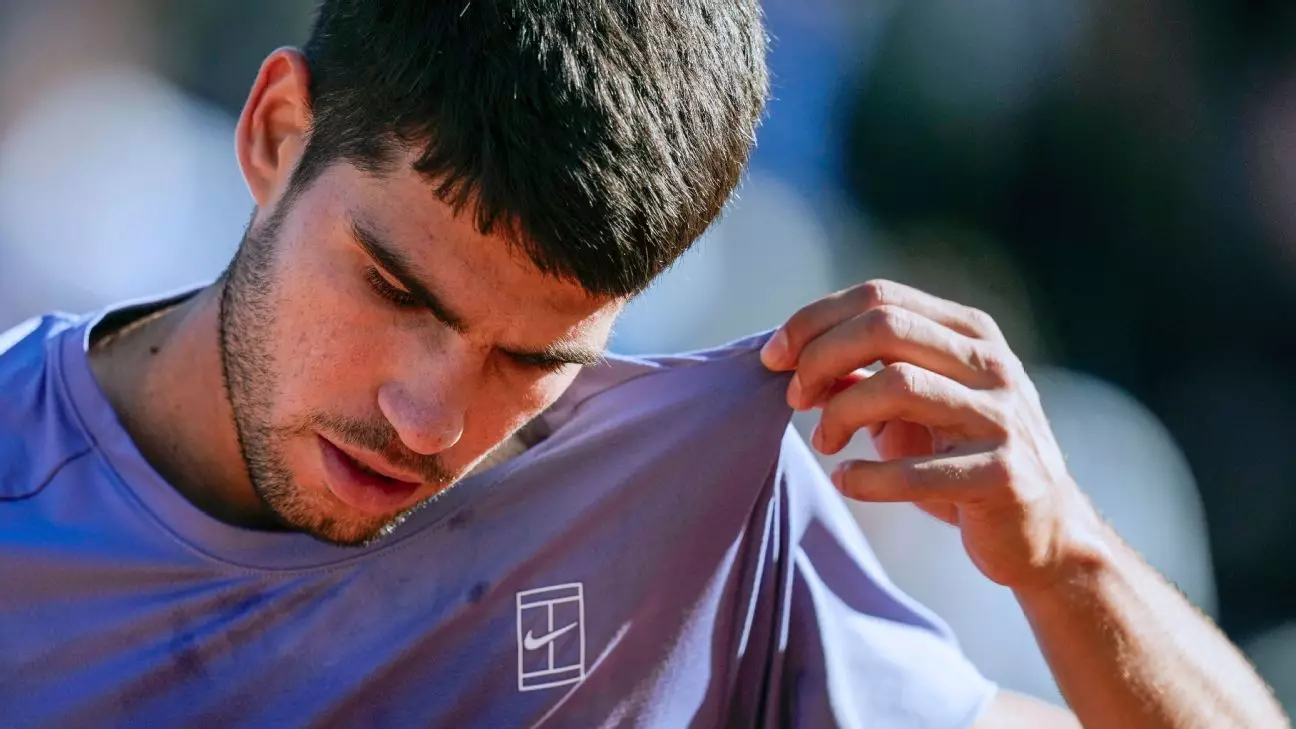Carlos Alcaraz, the unyielding tennis sensation from Spain, recently made headlines by withdrawing from the Madrid Open due to persistent leg injuries. The decision, announced just days before his highly anticipated appearance at the Caja Mágica, not only disappointed fans but also highlighted the physically demanding nature of professional tennis. For a player who captured back-to-back titles in Madrid over the past two years, this setback serves as both a personal challenge and a larger conversation about athlete wellness in high-stakes sports.
The Weighing Burden of Expectations
At just 21 years old, Alcaraz carries the weight of immense expectations. As the third-ranked player globally and a two-time Madrid champion, his journeys through both triumph and adversity resonate deeply with aspiring athletes. His withdrawal reflects not just a physical ailment, but the pressures athletes face while trying to maintain peak performance. Competing in consecutive tournaments often leads to physical strain, an issue Alcaraz himself acknowledged when he lamented, „so many matches and so few days to rest.“ This dilemma of balancing competition and recovery is unfortunately all too common in the modern game.
Physical Challenges Amidst Promise
Alcaraz cited upper leg issues stemming from his recent loss to Holger Rune in the Barcelona Open final, a match that demanded more from him than he could give. Treatment during that event was a clear signal that something was amiss, and his decision to skip the Madrid Open has echoed through the tennis community. Yet, beyond the injury, this moment poses critical questions about the longevity and sustainability of athletic careers. The rigorous demands of the ATP circuit require players to prioritize their health without compromising their competitive spirit.
Looking Ahead: The Path to Recovery
Interestingly, Alcaraz has expressed optimism about recovering in time for the French Open next month, where he stands as the defending champion. His confidence underscores the belief that strategic rest and recovery can revitalize an athlete’s performance. While his loss in Barcelona may have snapped a sparkling nine-match winning streak, his past successes in Monte Carlo and Rotterdam demonstrate that his potential remains unshaken. Fans and pundits alike will be keenly watching as he gears up for a critical moment in his career.
A Reflection on Player Well-Being
Ultimately, Alcaraz’s situation is a clarion call to reconsider the expectations placed on young athletes. The need for sufficient rest and recovery cannot be overstated, especially for those competing at elite levels. Conditioning not only involves physical training but also time for mental recuperation. With advancements in sports science, it is incumbent upon the ATP to ensure its players are equipped to manage these challenges effectively. Carlos Alcaraz’s journey is a reminder that while the spotlight may shine brightly, the path to greatness must prioritize health as the cornerstone of sustained success.


Napsat komentář